|
Luke 4:21-30 and Jeremiah 1:4-10
...Jesus is reading in his hometown synagogue and the people are initially pleased, just like we would be if Akyia or Sophia or Keely was reading scripture for us this morning. But then Jesus tells them that the scripture has been fulfilled in their hearing – basically he comes out as the Messiah! If Akyia or Sophia or Keely told us they were Jesus’ second coming, would we believe it? Would we say they’d gotten a little too big for their britches? (Do people say that anymore?) Well, we’d be whispering to one another and saying, “but I remember when she got in trouble for…” or “I changed her diaper!” or other things because we know the stories we tell of Akyia or Sophia or Keely or anyone else in this room. We’re pretty sure we know who each other is. And it’s not on purpose, it’s just completely natural, that we get attached to the stories we tell about each other and we can absolutely get in the way of one another changing, transforming, coming to new life. When Jesus speaks to his hometown in the synagogue, they can't accept his words because of the story they've told about who he is, and who the Messiah will be. Have you seen the church musical Angels Aware? I was in it as a kid. Those musical songs are catchy, they’re still in my head. In one song the characters – angels – are hanging out in heaven talking about the Messiah who’s about to show up in the world, God about to become flesh in creation. One angel sings, “if it were up to me, I think that he should go, as some kind of great hero, someone everyone would know.” Another angel counters, “if it were up to me, he would be a mighty king – then he would own everything…” And another, “if it were up to me, he would be strong and tough, someone who could strut his stuff…” And so forth. Well, we’ve heard the Christmas story more times that we can count. Jesus doesn’t show up a hero, king, or strutting his stuff, but a homeless baby in a manger, a refugee toddler fleeing tyranny, the kid of a carpenter and teenage mom. The stories we tell about Jesus determine who we understand him to be, and since we strive to be the hands and feet of Christ in the world, the stories we tell about Jesus shape who we understand ourselves to be, as well. Some Christians are still in denial, wanting what those angels sing in the silly musical – a strong Jesus who loves America and wants us to win in our wars, a kingly Jesus who wants us to be rich and enjoy fast cars and fancy vacations, a heroic Jesus who comes to our rescue to knock the bottle out of our hands, or help us put down the fudge, or walk us away from whatever addiction or danger we’re dealing with. You can find these stories of Jesus all over Lafayette this morning. What’s your favorite kind of story to tell about Jesus? Who does it invite you to be, as a follower of Jesus? .... In our liberation theology we often tell a political story of Jesus. Some theologians say that his goal was to overthrow Roman oppression rather than start a new religion. The descendant of abused women would be a likely champion of the marginalized. We tell the story of Jesus who befriends people society hates, Jesus who removes demons and disease, Jesus who kneels before his followers, Jesus who throws a dinner party for the last, the lost, the least. Our stories shape us, shape everything about us and how we see the world. We can only tell stories about the past, but we tell them with the perspective we hold in the present. We change our stories as we change, when we see different shades of them and ourselves. We’re telling the story of Lafayette Church of the Brethren all the time, without even knowing it. These days we’re especially telling stories of loving like Jesus by serving others and witnessing for peace....
0 Comments
Parable of the Toll Colletor and the Pharisee
...With cruel words assaulting his ears, with judging eyes washing over him, with officials ready to drag him out of the sacred space of the Temple, knowing that he has no ability to pay restitution, make amends, and probably no way to find a new job…what else could the toll collector do, but beat at his own heart in anguish? Head hung in humility, he pummels his chest and cries out, “God be merciful to me, a sinner!” When have you been there? So powerless, or afraid, or ashamed, in despair, maybe all at once? When have you been so out of options, so out of energy, so out of hope, that you had nothing left but to beat your chest, or fall to your knees, or weep, or curl up in bed, and cry out for mercy? While the toll collector stands away from the crowd, he does not stand alone. He knew before he arrived at the Temple that he was unwanted, despised, considered a thief, and had no way to reconcile with his community. Yet he comes to the Temple to be in the presence of God. He risks being dragged away, he hears the worst of himself laid bare in front of his neighbors, but he stays to be with God. It is with his flaws and mistakes exposed in the midst of the moral authority that he finds justice. When the Pharisee names the toll collector’s sins, God does not vacate or strike anyone with lightning. God already knows his (and our) shame and flaws and offers us justice when we show up. What words could be said of you? What’s the worst sin and shame that you carry?...  Zephaniah 3:14-20 A Song of Joy ...We sing when we've overcome, like Miriam who just crossed the Red Sea. We sing when we’re on the edge of glory – in the process of good news – like Hannah or Mary blessed with extraordinary pregnancies. We sing when we're still seeking to overcome, like the favorite civil rights hymn that’s probably been playing in your head since I used the word overcome! Songs of easy life are boring and don't move us – they don’t usually get written. We sing to praise God when we’ve crossed the Red Sea, or when we’ve found out the cancer is in remission, or the surgery was a success. We sing to thank God when in the process of the good news of an extraordinary pregnancy, or when we’re about to start a new job, or when we’ve finally gotten out of a toxic relationship. We sing to call on God when we’re seeking civil rights, when we’re risking for justice, when we’re striving for the kingdom of God on earth. We sing when we’re staring at trouble, when we’re right in the midst of trouble, when we’re emerging out of trouble, when we’ve left trouble behind. I don’t believe God gives us troubles to test us but I do see that we get closer to God through our struggles because we're working together, we’re calling on God, we’re singing to God. Just like we get closer to each other when we’re working side by side, when we’re leaning on each other, when we’re asking for help and giving it. The hard times in our lives are the best opportunities for us to get closer to each other and get closer to God. Even the hard times that are joyous, like new babies or weddings or new jobs – good news still means change, still brings challenge. These challenges, these troubles, these changes, are the cracks in our lives. Just like grass and weeds and flowers grow up through the cracks in a sidewalk, life flows through our cracks. We find joy in the cracks, not in the easy life. How many seriously faithful people do you know who’ve lived easy lives? Faith, living close to God is usually strongest in people who’ve had all kinds of challenges, who’ve weathered all sorts of storms, who are still living amidst cracks, still calling for justice, still singing in hope. Look to the cracks – in your own life, and in the lives of people around you – and see God’s light shining through. See the grass growing up through the cracks.... 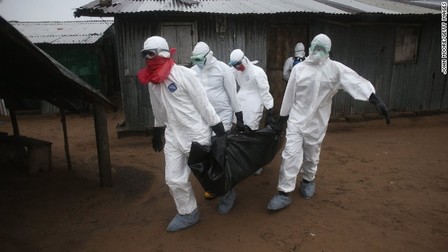 from December Remember when Ebola was the scary thing on the news? Last year’s outbreak killed thousands of people in Africa and other parts of the world, and though the worst seems to be over, it keeps coming back. In the height of the outbreak, two US nurses came back from Liberia and told National Public Radio, “One day, an Ebola-infected mother brought her baby into a hospital. The mother died, and the baby was left in a box. They tested the baby, and the baby was negative, but the symptoms in babies and the disease progression in babies is different than adults. So the nurses would pick up and cuddle the baby. And they were taking care of the baby in the box. Twelve of those nurses contracted Ebola. Only one survived. They couldn't just watch a baby sitting alone in a box.” We celebrate love. We long for love. We idealize love. We love love! We don’t usually fear it. Love can be dangerous when it’s codependent, when it’s abusive, and when it ends with betrayal. But usually love isn’t scary.... I was living in Minneapolis last year during the Ebola outbreak. Minneapolis has one of the largest population of West African immigrants in the United States. In my city, schoolchildren from Liberian families are ostracized at school and come home crying. Every day there’s another mass shooting in our country. Actually, more than one a day, we’ve had 353 so far in 2015. 62 of them have been in schools. Are you afraid when you walk into a school these days? Or go to a movie? Or just go shopping? Or sit in traffic wondering about other drivers’ road rage? Some of you have experienced violence in your homes too – it’s not just strangers we might be afraid of. Yann Martel writes in Life of Pi: Only fear can defeat life. It goes for your weakest spot, which it finds with unerring ease. It slips into your mind like a spy….you become anxious….you make rash decisions. You dismiss your last allies: hope and trust. There, you’ve defeated yourself. Fear, which is but an impression, has triumphed over you. Going to church is one of the best ways to deal with fear. Here we step away from the swirl of rhetoric and the 24-hour news cycle. Here we read old stories alongside the stories of our lives, to gain perspective. Here we open to one another’s wisdom and pain, here we proclaim in prayer and song, here we witness what we are bringing into this world. We have to name our fear to deal with it, and church is a perfect place to air our fears. In community we walk alongside one another, and cultivate courage. We tell the stories of Jesus, who touched and ate with lepers. We tell stories of being the ones shunned, of the times when we’ve done the shunning, and we grow through these stories. The people asked Jesus which commandment was the greatest. He didn’t hesitate. “Love God with all your heart, soul and mind, and love your neighbor as yourself.” And then the people asked, “Who is our neighbor” and he invoked an enemy and someone bloody, bruised, collapsed along the road. Love one another. It’s as simple as that. And that’s outrageously complicated because love is risky – not just with contagious disease in our bodies, not just with guns all over our community. Love is risky, love is complicated because we don’t all want the same things, we don’t believe the same things, we don’t have the same priorities, we don’t have the same perspectives on the annual budget or the best way to attract new members or the most important justice outreach or leadership for the church. We can get dizzy with all that to stress about. Honestly, we have been dizzy lately. The past week I’ve heard about more conflicts in this body than any other week I’ve spent with you! I’m not surprised, and I’m definitely not judging. We’re living in an outrageously stressful season, not just as a congregation in the midst of a search process, not just as families in the midst of holidays, not just as bodied people in the midst of changing weather and lots of germs and aging, not just as a community saying goodbye to people we love, not just as a country in the midst of terrifying violence, not just as a planet in the midst of terrifying violence. We’re dizzy with all this fear! What do you do when you’re dizzy, physically? You don’t keep moving, you don’t lash out, you don’t start to run. When we’re dizzy we stop, we breathe, we wait until we catch our breath before we move again with balance. When we’re dizzy with fear we need to do the same thing. Stop, rest, breathe, breathe until you’ve regained your balance, your spiritual balance, and remember that the most important thing is love. It’s a commandment, the greatest one, to love God and one another. It’s a commandment, an order, a rule, but it’s totally freeing, too. When in doubt, love. When you’re scared, love. When you’re angry, love. When you’re disappointed, love. Love is already within us, love is groaning to be shared, love compels us to be in this room this morning, to cuddle babies, to soothe the sick, to speak up for our neighbors....  from Advent, actually ...The sacredness of marginalized people shines in the genealogy of Jesus. Like any other genealogy of the Bible, “so-and-so begat so-and-so…,’ Jesus’ genealogy is virtually all men. Our Advent scriptures recall prophecies about the messiah coming from the lineage of King David, a royal line. However, Jesus breaks tradition, in the record of his genealogy and in countless other ways. Tamar, Rahab, Ruth, Bathsheba and Mary are each named in his lineage. Read it in the opening chapter of Matthew. Now these are not just any women – these are each women in the midst of tumultuous circumstances: * Tamar’s husbands keep dying, and she tricks their father into giving her financial and familial support through the Levirate law that he is avoiding * Rabab is a Canaanite – an enemy of the Israelites, as well as a prostitute, and she rescues Israelite spies * Ruth is a Moabite – looked down on by Israelites – and after her husband dies she partners with her mother-in-law Naomi and they forge an untraditional life together * Bathsheba is married to a Hittite and gets pregnant through rape by King David * Mary is young, unmarried and pregnant, with a strange and shocking story about God The women honored to be named in Jesus’ lineage remind us that those on the margins bring unique vision and transformative power to our communities. We each bring our own marginalization to this church – our financial insecurities, our family instabilities, our physical infirmities. Even those of us who have mainstream privileges through our race or gender or education level or sexuality or wealth, each one of us carries edges, margins, there are ways that every one of us has been excluded by mainstream society. When we get in touch with those edges, we’re ready to fully be at church, at Christ’s table, in the Kingdom of God. When we get in touch with our own edges we understand how to welcome others with compassion. And more than merely welcoming the Other, we must expect to be changed by the Other. Jesus is shaped by these marginalized women – who would he be without these foremothers? Would he save us as he does? These people on the margins, the edges, of society are at the very center of scripture’s stories. And by telling these stories, we recall that those on the margins in Jesus’ time had gifts of wisdom and love – a bottle of precious oil, a widow’s two small coins, a bucket and a lot of baggage at a Samaritan well – by telling these stories, we know that those on the margins are not people to be pitied or fixed or saved. These are people to listen to, to watch, to follow, because their edges – the ways they are on the margins – give them essential and unique gifts for this world. These stories are told because they come from the edges of society, where generosity is an act of faith in the midst of poverty, where disclosure is an act of courage in the midst of shame. When we think of our edges, the ways we live in the margins, we quickly think of oppression, prejudice, and harm. We want to get rid of the reasons for edges. This is abundantly easy to see when it comes to race. If I handed you a book about “race”, what would you think that meant? Probably you would expect the book to be about racism. If we decided to have a Sunday school series about “race” we would end up talking about racism. We can barely even think the concept of race without thinking of racism. No wonder many scholars and young people and educators now argue that we should strive for a color-blind society, in which the concept of race becomes meaningless. Color-blindness isn’t a new idea, but it is gaining traction. Over 100 years ago, the scholar W E B Du Bois countered this same suggestion. He argued against the idea that black Americans’ “sole hope of salvation lies in our being able to lose our race identity in the commingled blood of the nation; and that any other course would merely increase the friction of races which we call race prejudice.”1 Doesn’t this sound familiar? Just stop talking about the things that make us uncomfortable – you have basic civil rights, at least on paper, so keep quiet about slavery, institutional racism, police brutality, and the fear you feel living in a white world. Du Bois knows that race is more than racism, that difference is more than inequality. We struggle to talk about this, though. We’ve all heard lip-service given to the importance of diversity – that it makes our workplaces and communities stronger. This sounds good, but what does it really mean? We stay in the safe vagueness because difference is dangerous to talk about.... |
Archives
January 2022
|
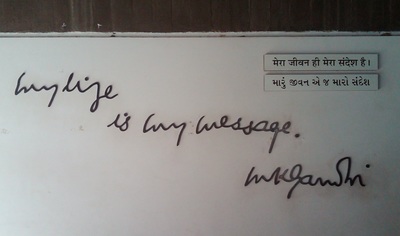
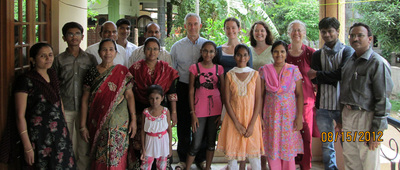
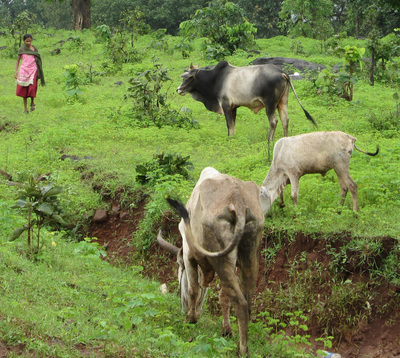
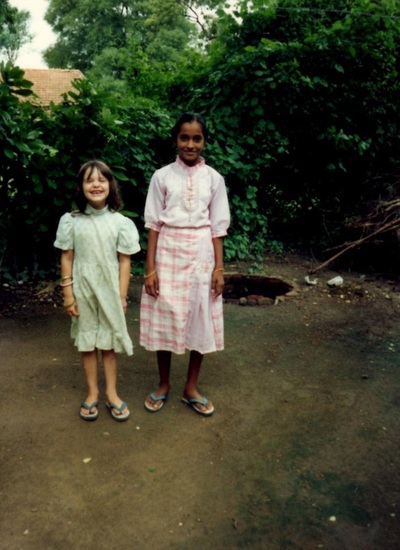
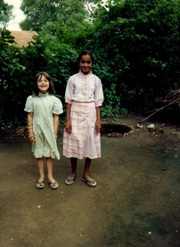

 RSS Feed
RSS Feed